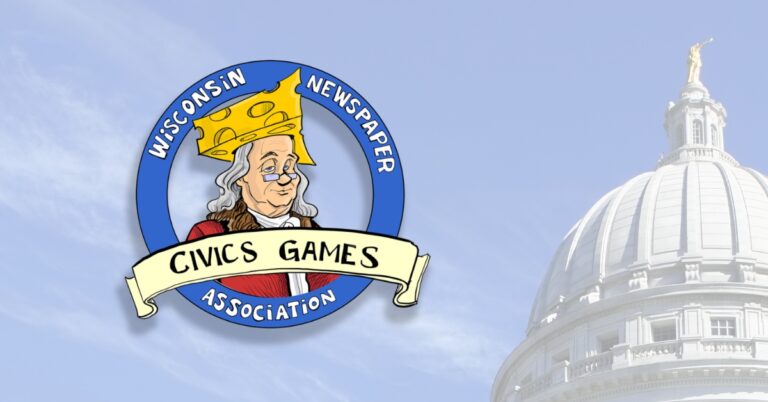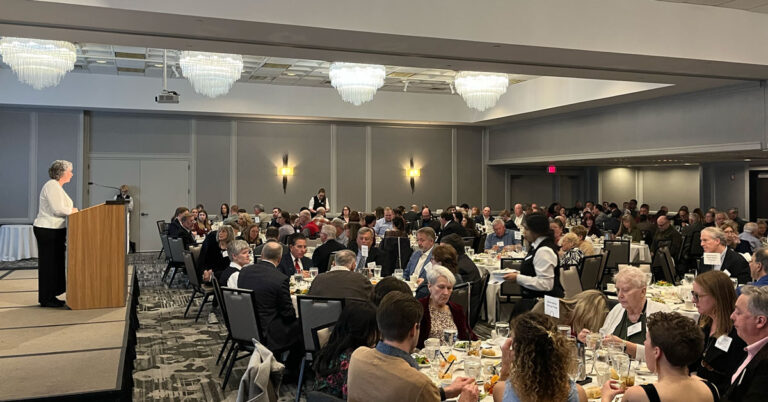The Capitol Report, produced by WisPolitics.com — a nonpartisan, Madison-based news service that specializes in coverage of government and politics — provides a weekly analysis of issues being
debated in Wisconsin state government. It is underwritten by the WNA and produced exclusively for its members. WisPolitics President Jeff Mayers is a former editor and reporter for the Associated Press and a former political writer for the Wisconsin State Journal. The WisPolitics logo can be downloaded here.
Editor’s note: This column is provided to Wisconsin Newspaper Association members by WisPolitics.com. Proper attribution to WisPolitics.com is appreciated. Also, please publish the tagline that is included at the end of the column.
Battle over wedding barns hits state legislature
While the attack ads fly in the races for governor and U.S. Senate, another battle is quietly taking place in Madison.
The battle is over wedding barns.
A legislative Study Committee on Alcohol Beverages Enforcement has met twice on this controversial issue.
Wedding barns are rented out for weddings or other private events and are not currently licensed to sell alcohol. But they still allow people to drink on the property. The Legislature earlier this session attempted to crack down on the venues but failed amidst fears the language would impact tailgating around Lambeau Field and Camp Randall Stadium.
Committee members at an Aug. 22 meeting discussed concerns surrounding the wedding barns, such as smoking on the property, underage drinking, fire codes and parking violations, as they expressed a preference for creating statewide standards to address those issues.
But owners of the venues said they’re already subject to ordinances from their local municipalities.
“We don’t need liquor licenses, because we are locally permitted, and we are regulated,” said Bonnie Keyes, owner of Mulberry Lane Farm in Hilbert.
Chairman Rep. Rob Swearingen, a restaurant owner/operator and member of the Tavern League of Wisconsin, countered that implementing uniform standards and liquor licenses for all wedding barns would create a “fair playing field” for all venues.
The Rhinelander Republican also signaled he was open to the possibility of mandating a licensed bartender for private events at venues beyond wedding barns.
Swearingen earlier said he’s looking to “move beyond the controversy and find solutions” surrounding potential changes to the state’s three-tier system for the manufacture, distribution and sale of alcohol.
Swearingen likened regulating unlicensed venues and barns to the process in establishing regulations for ride-share companies such as Uber.
“Stop the music until we can get this properly done and regulated,” he said.
Meanwhile, fellow committee member Sarah Botham, director of marketing for Botham Vineyards in Barneveld, slammed wedding barns for creating an “uneven playing field for the competition of business.”
Swearingen also said one of his chief concerns was the Department of Revenue’s interpretation of what would be allowable if state statute was not specific surrounding issues of enforcement.
But Revenue Secretary Richard Chandler stressed at the committee’s first meeting that the agency’s job is only to interpret the laws as written. He used the policy debate over wine walks — events where a group of retailers serve wine and snacks to participants — as an example of the Legislature changing state law. Before the 2015 change allowing municipalities to issue temporary alcohol licenses covering different locations over one day, DOR did not allow wine walks.
“We’re not making a policy decision on whether wine walks are good for the community,” Chandler said. “Sometimes the public thinks we are being too strict, or not strict enough.”
James Wigderson, of Right Wisconsin, a conservative political website, has knocked the committee’s effort.
He notes Swearingen is a former president of the Wisconsin Tavern League and says “he’s determined to crack down on the competition. The committee is largely stacked in the Tavern League’s favor and not one event barn owner is a member of the committee.’’
Sheila Everhart, the president of the Wisconsin Agricultural Tourism Association and the owner of Everhart Farms, said there are already laws that cover many of the concerns of some of the committee members.
Everhart’s organization represents over 150 members. There are approximately 250 event barn venues in Wisconsin and they generate $120 million in economic activity annually, according to a study the organization conducted, based on an average of $20,000 per wedding.
Everhart told Wigderson her members are subject to local noise laws and laws governing the hours of operation.
Jean Bahn of the Farmview Event Barn in Berlin wondered if committee members had even been in a wedding barn after they questioned the safety of holding a catered event at these venues.
“I frankly don’t know what bride would rent a place that had ‘holes in the floor’ and ‘bird droppings all over the table,’” Bahn said. “It just doesn’t make sense to me for them to say that’s what wedding barns are. It’s a huge investment in making sure our buildings are safe.”
Bahn also explained that some of the committee members were just simply wrong about claiming these event barns were unlicensed by the local municipality.
“The first step was to get permitted by my township, by my county,” Bahn said. “They’re implying that the entire community are just fly-by-night.”
Sara Haase of the Croix-View Farm said she requires her guests to use her preferred vendor, a licensed bartending service, for serving alcohol at events at her location. Like the other event barn operators, she doesn’t sell the alcohol as she doesn’t have a liquor license. The events at her location are private parties. The licensed bartender is required by Haase to check the ID of everyone and mark the hands of those that are legally able to be served alcohol.
“If you do not have an ID, she will not serve you,” Haase said. “I just went to that for the safety of our neighbors, for safety for our best interests, and because I think it’s just a smart thing to do.”
Haase also had to go through a permit process with her county before she could open her farm up to having events. The barn events cannot go past midnight, with music and the bar service ending before 11:30.
As for the safety and sanitary standards of her event barn, Haase says her operation is a lot better than many of the bars in Wisconsin.
“There are a lot of bars that are just as unsanitary as a barn, if not more so,” Haase said. “I’ve been in bars where there are dogs wandering around and they serve food. And I’m thinking how in the heck is this up to code?”
The Capitol Report is written by editorial staff at WisPolitics.com, a nonpartisan, Madison-based news service that specializes in coverage of government and politics, and is distributed for publication by members of the Wisconsin Newspaper Association.
Copyright © WisPolitics.com



